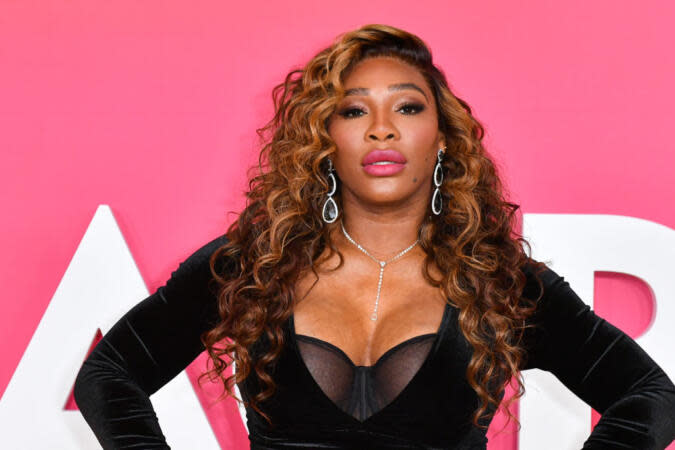Serena Williams Admits She ‘Hasn’t Seen Many Changes’ In Maternal Healthcare Disparities Against Black Women In Upcoming Norah O’Donnell Interview

- Oops!Something went wrong.Please try again later.
Iconic sports star Serena Williams is opening up about her near-death experience after giving birth to her daughter. In an exclusive interview on CBS News Streaming’s Person to Person with Norah O’Donnell, the athlete discussed how health disparities against Black women played a significant role.
CBS Evening News anchor Norah O’Donnell began the interview by acknowledging Williams’s impact when she shared her story regarding her traumatic postpartum experiences.
The post Serena Williams Admits She ‘Hasn’t Seen Many Changes’ In Maternal Healthcare Disparities Against Black Women In Upcoming Norah O’Donnell Interview appeared first on Blavity.
She then asked Williams if she “had seen any positive changes” since then?”
Williams, 41, honestly responded that she doesn’t know right now if she has seen a ton of changes.
The story they are referring to is the emotional narrative she shared after giving birth to her daughter, Alexis Olympia Ohanian Jr.
She went public about the dismissive and ultimately dangerous care she received after her Caesarean section.
Blavity shared segments of an op-ed Willams wrote for CNN in 2018. In the article, she stated, ‘”doctors aren’t listening.” She went on to discuss racial disparities in deaths related to childbirth and complications in pregnancy for Black women.
Williams suffered a pulmonary embolism after her first daughter was delivered. She mentioned her medical history of pulmonary embolism, so she knew what to do when experiencing symptoms. She shared her anger and fear when nurses ignored her after alerting them of her needs. Their disregard landed Williams in emergency surgery.
“This sparked a slew of health complications that I am lucky to have survived,” she wrote. “First my C-section wound popped open due to the intense coughing I endured as a result of the embolism. I returned to surgery, where the doctors found a large hematoma, a swelling of clotted blood, in my abdomen. And then I returned to the operating room for a procedure that prevents clots from traveling to my lungs. When I finally made it home to my family, I had to spend the first six weeks of motherhood in bed.”
She concluded her scary recount by acknowledging that her privilege of having top-tier healthcare possibly saved her life. But unfortunately, that isn’t the case for some.
In the CBS interview, she discussed that realization with O’Donnell. “You know everyone has a birth story. People started to talk about how, unfortunately, Black moms don’t receive the same care.” The 13-time Grand Slam winner continued, saying she learned that some medical students were being taught that race could determine a woman’s level of care or need.
“I was shocked. These students are being taught that Black women don’t need care because they can handle a lot more pain.”
The interview sheds light on how the health of Black women is devalued, in and out of the hospital.
Williams previously shared her experience with migraines and how the pain sometimes would be unbearable. O’Donnell also asked her about the response she got for opening up about them.
She said the positive response to speaking out about her migraines allowed her to stop “suffering in silence.” Williams further explained the immense pressure she felt from having to show up still and “perform” as an athlete.
“No one in the crowd or watching on TV understands anything, but this is a player and she has to play and she has to win.”
Williams’ full interview will air on Person to Person with Norah O’Donnell on Feb. 27 at 9:30 p.m. ET.

